Paul Starick: Voters will be affected by interest rate rises and SA Labor’s ruthless upper house move
As the Vickie Chapman saga reached new heights in the lower house, a Labor power play in the upper house will have far-reaching effects on SA voters, writes Paul Starick.
Opinion
Don't miss out on the headlines from Opinion. Followed categories will be added to My News.
Two extraordinary changes in recent days will mark momentous turning points in the political system’s effect on voters’ daily lives.
The first interest rate rise since 2010 creates bigger mortgage repayments for householders and intensifies the pressure on governments carrying record debt and huge spending demands.
The era of historically cheap money is over at a time when Australians have become more reliant upon governments than ever in the wake of the Covid-19 pandemic.
Key players in the May 21 election campaign continue to propound the misguided expectation that Australian governments can definitively solve issues as complex as climate change, cost of living and stagnant wages.
At a state level, newly installed Treasurer Stephen Mullighan’s June 2 budget will be severely tested by rising inflation and interest rates. He has to start funding $3.118bn in election promises, including $1.145bn in health and $593m for a Whyalla hydrogen power plant.
The accuracy of Labor’s costings, assessed before inflation and rate spikes, will come under pressure.
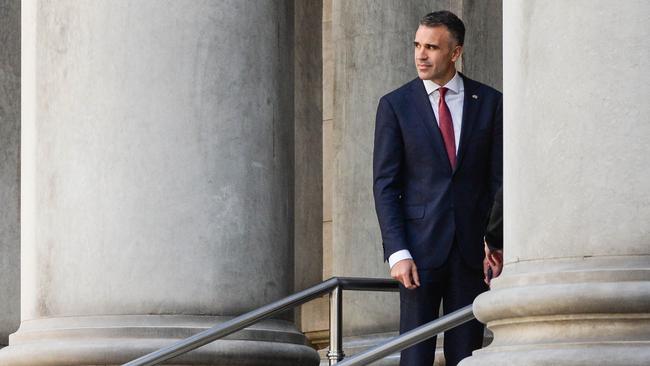
But the newly elected Labor government’s task of pushing through legislation to keep its election promises has been made vastly easier by the other extraordinary change – securing effective control of the upper house through the election of Liberal Terry Stephens as upper house president and the removal of his vote from the floor.
The nine-member Labor bloc now needs only the backing of either the Greens or SA-Best, both of which have two members, to pass legislation. This means the Malinauskas government can choose between the Greens on the Left or SA-Best to the centre in a bid to forge support. By contrast, the Liberals would require the backing of both to block Labor’s agenda.
Even after a landslide Liberal win in 1993 infamously left Labor with just 10 seats in the 47-member lower house, the-then premier Dean Brown struggled to implement change because of upper house resistance. Labor will have no such problems.
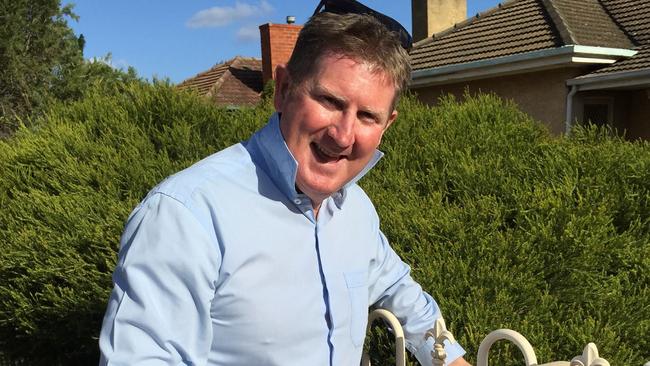
Given state governments deliver services including health, education and transport, there will be noticeable effect on voters’ everyday lives. Labor will have the ability to remake the state to its own ends – the test will be the success or otherwise of its agenda.
Senior Liberals argue the Greens and Labor have forged an alliance, citing as evidence the Greens’ decision to preference ex-Liberal independent Sam Duluk above his former party in the southeastern Adelaide seat of Waite, which Labor subsequently won.
This was despite Greens MLC Tammy Franks just six months before the election unleashing a barrage of extraordinary allegations against Mr Duluk, detailing under parliamentary privilege shocking claims of drunken sexism, racism and homophobia on the night of a boozy parliamentary Christmas party. These were rejected by Mr Duluk, who was accused of assault and found not guilty in court.
Tuesday’s manoeuvring demonstrates, yet again, state Labor’s ability to massage an agenda and ruthlessly deploy political craft to suit its own ends. They play hard, particularly Manager of Government Business Tom Koutsantonis, in a manner that often offends the polite sensibilities of South Australian politics – particularly as conducted by the too-often meek Liberals.
In a sleight of hand trick, Labor fuelled attention on the saga of Vickie Chapman’s impending resignation from the lower house to divert eyes from the impending power play in the upper house. Mr Stephens was elected unopposed after a nomination by Ms Franks. He was upper house president in 2020, from February to September, but, somewhat ironically, quit as the original target of the country members’ travel allowance scandal that set the Marshall government on a careening course to electoral disaster.
Premier Peter Malinauskas might be enjoying an electoral honeymoon and a strategic parliamentary victory. But he needs to continue his caution at signs of hubris and arrogance among his troops. More particularly, the economic climate is worsening, posing huge challenges for a government with a big-spending agenda.
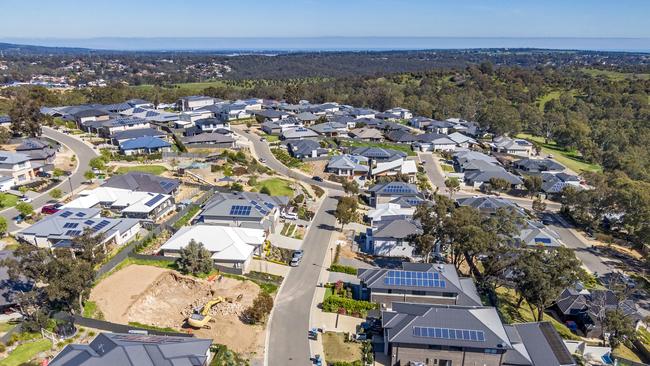
Stockmarkets are plunging around the world amid interest rate and inflation spikes. In Australia, interest rate hikes have started earlier and will rise higher than expected, according to Westpac. “The shift will almost certainly come as a shock to consumers. While they were already on rate hike watch, only about a third of consumers surveyed in April expected anything like this scale of rate increases,” its analysis says.
The world is changing dramatically. It’s not clear whether governments can adjust to the new reality.
Things are going to get hard. Neither of these two has a plan
Our world is gripped by extraordinary challenges and tectonic upheavals, which the two men vying to become prime minister appear almost impotent to tackle.
The Covid-19 pandemic was considered the biggest disruption since World War II but, now that lockdowns have been banished, the mainstream Australians who decide elections face considerable instability.
Prime Minister Scott Morrison and Opposition Leader Anthony Albanese are talking about these challenges but, arguably, seem unable to craft and communicate lasting solutions. Perhaps it is beyond them.
These are, indeed, chaotic times.
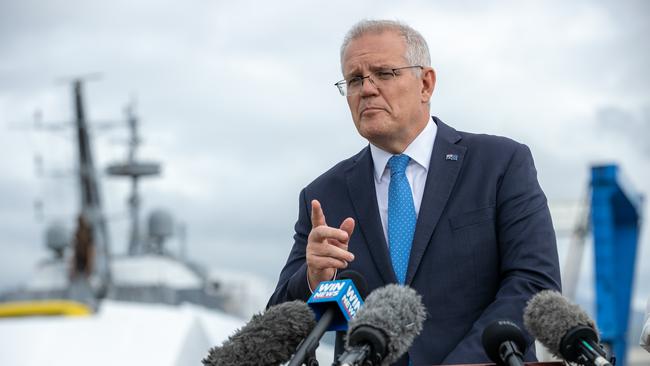
Rapidly rising interest rates are predicted to further sting homeowners already hit hard by soaring cost of living pressures. Economists expect the Reserve Bank to begin hiking rates on Tuesday to counter inflation hitting a 20-year high. “Consumer prices pressures are mounting at an astonishing rate, blowing the Reserve Bank’s forecasts and consensus forecasts out of the water,” Bank SA Economics says.
The global order has been up-ended by Russia’s invasion of Ukraine, according to Blackrock chairman Larry Fink, who heads the world’s biggest funds manager. “The magnitude of Russia’s actions will play out for decades to come and mark a turning point in the world order of geopolitics, macro-economic trends, and capital markets,” he said in a March 24 letter to shareholders. “The ramifications of this war are not limited to Eastern Europe. They are layered on top of a pandemic that has already had profound effects on political, economic, and social trends. The impact will reverberate for decades to come in ways we can’t yet predict.”
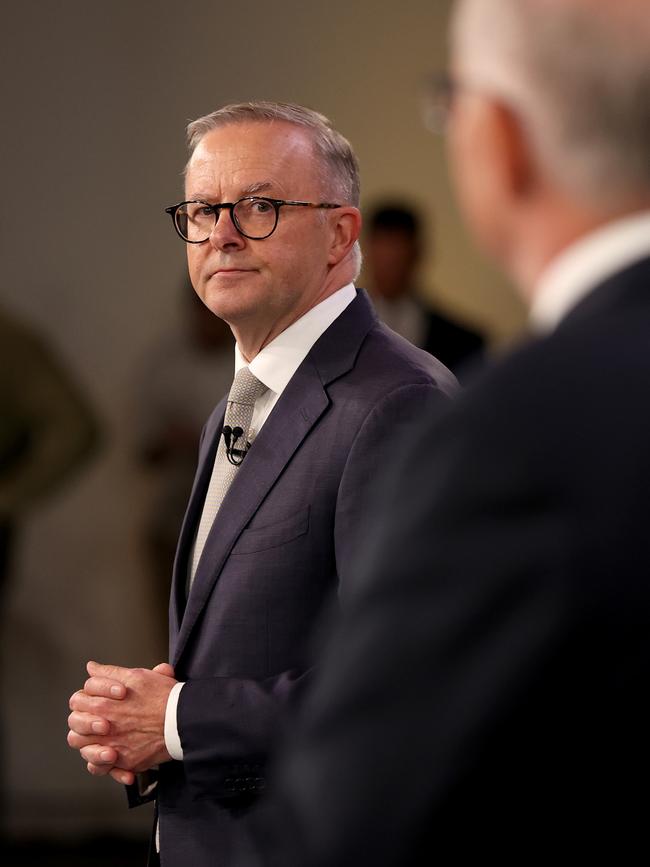
In a chilling report to its clients, finance giant Deutsche Bank is forecasting a “major recession” looming for the United States, prompting a grim warning for Australia. “We regard it … as highly likely that the Fed (US Federal Reserve) will have to step on the brakes even more firmly, and a deep recession will be needed to bring inflation to heel,” the report reads. “The scourge of inflation has returned and is here to stay.”
Commenting on the report, IG Markets Analyst Hebe Chen said Australia’s economy likely would be compressed alongside that of the US, because of shrinking investment, demand for our products and job losses.
“Plus, an additional factor that we shouldn’t overlook: for the past decade, the rise of China has acted as a backbone for Australia’s economy by injecting money into commodity, travel, and education sectors, before the pandemic and the bilateral relationship turned sour,” she said. “That is to say, what lays ahead for the Australian economy is not only a US recession but a double whammy from the two largest economies in the world.”

Australia remains economically reliant on China, our biggest two-way trading partner. According to the Department of Foreign Affairs and Trade, it accounts for almost one-third of our total trade with the world.
But Australia has been unable to stop China forging a security pact with the Solomon Islands, giving credence to Labor accusations that the Coalition has dropped the ball on regional security.
Mr Morrison, somewhat bizarrely, has declared he had drawn a “red line” amid concerns China could establish a base in the Pacific island nation. The consequences of China crossing Mr Morrison’s line are entirely unclear. .
Voters are losing faith in the major parties to tackle these and other important issues. A Newspoll published in The Australian on April 19 found the combined popular support for the Coalition and Labor was at its lowest level for five years, and the lowest level on record for an election campaign.
The latest Australian Financial Review/Ipsos poll found fewer than half of respondents consider Mr Morrison or Mr Albanese competent; only 30 per cent consider Mr Morrison trustworthy and 31 per cent believe Mr Albanese has a firm grasp of economic policy.
This drift from major parties is perhaps explicable by global political trends, which reveal a yawning social divide between the haves and have nots.
This was most recently evident in Emmanuel Macron’s victory in France’s presidential election. He secured 71 per cent of professional/managers votes, while nationalist opponent Marine Le Pen got 68 per cent of workers.
University of Queensland school of economics Professor Lionel Page says the left-right political divide has been replaced by opposition between what have been termed “anywheres” (urban elites enjoying global borders) and “somewheres” (those left behind attached to their national identity).
For whatever reason, it’s more than likely there are historic levels of disengagement for the May 21 election campaign. Both leaders offer little hope of suddenly changing and managing to inspire the nation.





